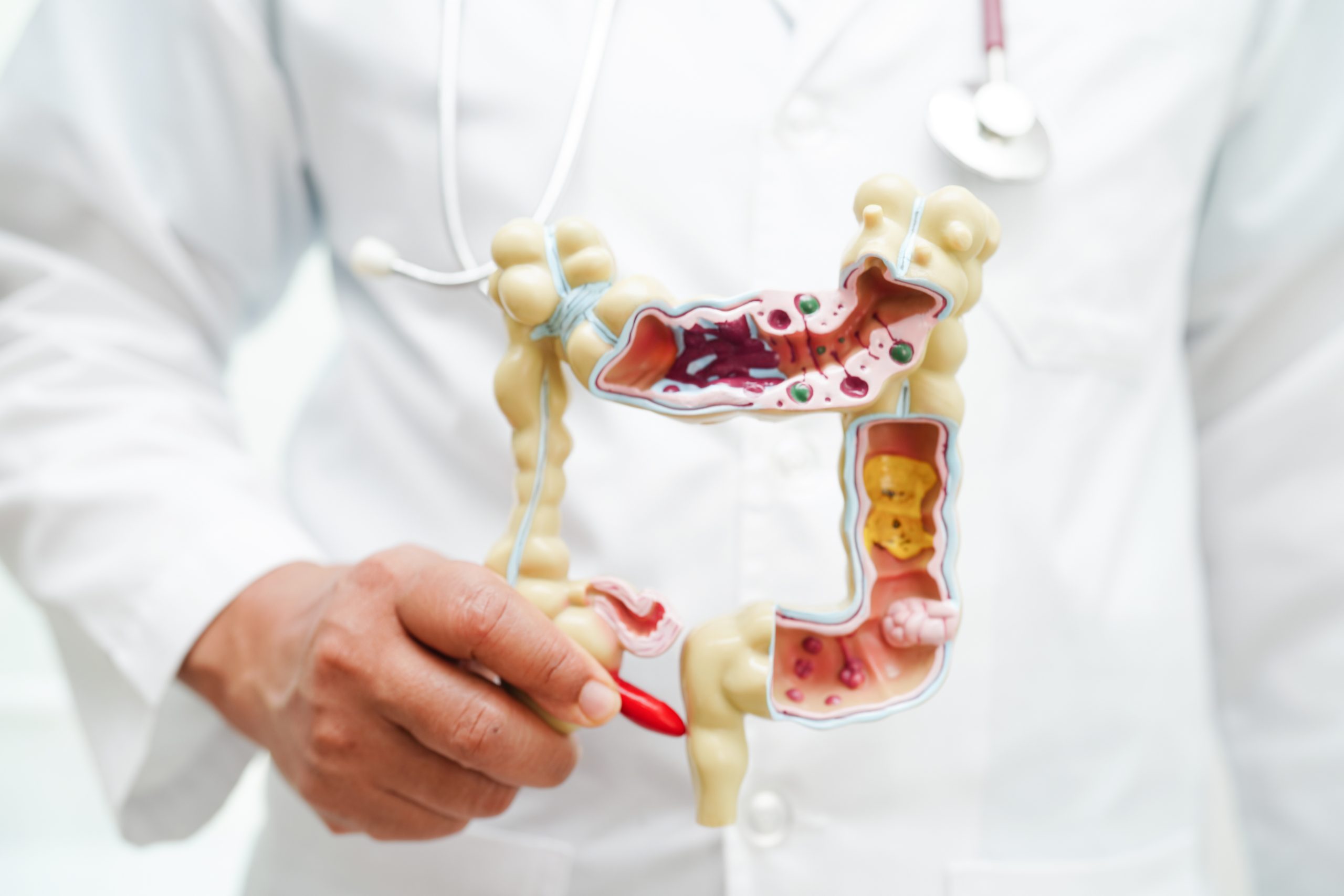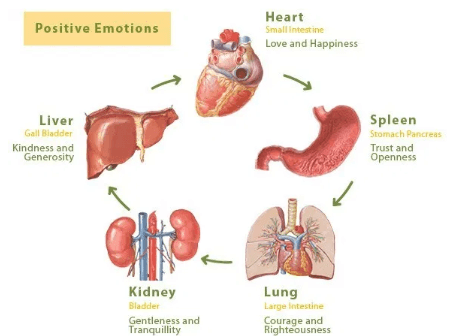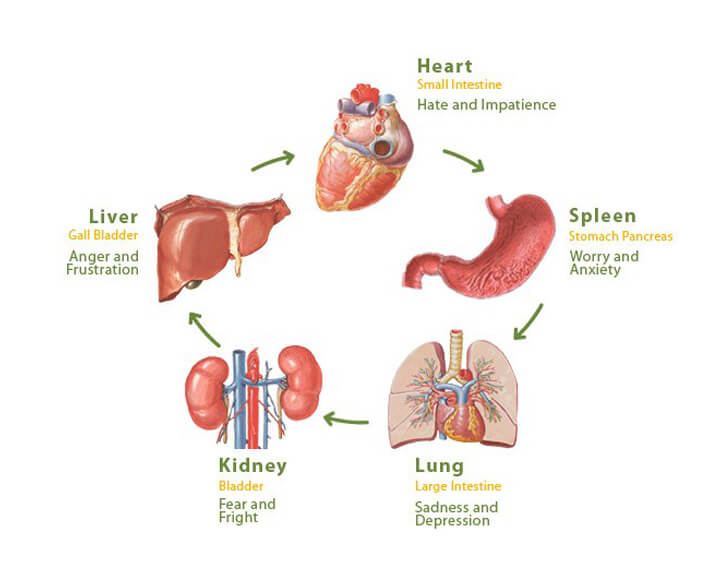
The Connection Between Your Emotions & Organs
过喜则伤心;
过怒则伤肝;
过度思虑则伤脾;
悲忧过度则伤肺;
过恐则伤肾。
In Traditional Chinese Medicine (TCM), there are seven emotions (七情) that affects the health of the five internal organs (五脏). These emotions are namely: joy, anger, worry, longing, sadness, fear, and shock.
These emotions we have are natural reactions to external environmental stimuli. Under normal circumstances, they will not cause any disease.
But when the emotional stimulation is overwhelmingly strong and long-lasting, it surpasses the body’s capacity and capability to handle them. Therefore, it leads to damages in the body’s internal organs and obstructions in the flow of qi.
When our internal organs are healthy and well taken care of, they also contribute to our positive emotions such as love, trust, courage and gentleness. See below diagram.
Positive Emotions Creation Cycle

- Heart & Small Intestine
- Element of fire
- Positive emotions: Love, Joy, and Happiness
Recent scientific research has shown that feelings of love and appreciation strongly influence the heart’s rhythm and its relationship to the body’s physiological systems.
- Spleen, Stomach & Pancreas
- Element of Earth
- Positive emotions: Fairness, Openness and Trust
- Lungs, Skin & Large Intestine
- Element of Metal
- Positive emotions: Courage, Righteousness
- Kidney, Ears, Bladder
- Element of Water
- Positive emotions: Gentleness, Calmness and Silence
- Liver, Eyes, & Gall Bladder
- Element of Wood
- Positive emotions: Kindness and Generosity
Negative Emotions Creation Cycle

- Heart & Small Intestine
- Negative emotions: Hate, Impatience
Your heart reacts to strong emotions of hate or impatience. These emotions can lead to heart palpitations, insomnia, and other unpleasant sensations and disorders.
- Spleen, Stomach & Pancreas
- Negative emotions: Worry, Anxiety, Mistrust
Worry is controlled by the spleen. In TCM, symptoms of spleen issues are fatigue, memory issues, poor appetite, bloating, weight loss, paleness, poor hair growth, nails and yellow skin. Eating properly and exercising regularly is very important when the spleen is affected.
- Lungs, Skin & Large Intestine
- Negative emotions: Sadness, Depression
The emotion of sadness is closely associated to the lungs, skin and large intestine. As these emotions get accumulated in the body, it can weaken the nervous system, reduce energy leading to body fatigue. Symptoms associated with a lung issue are tightness in the chest, shortness of breath, asthma, and frequent colds. And symptoms associated with the skin are psoriasis and eczema.
- Kidney, Ears, Bladder
- Negative emotions: Fear
Fear is closely related to the activity of the adrenal glands that lie on top of the kidneys. The adrenal glands secret adrenalin when stimulated by the body’s flight or fight response.
- Liver, Eyes, & Gall Bladder
- Negative emotions: Anger, Frustration, Jealousy, Envy
The liver is important for storing and rapidly releasing glucose into the blood. The energy of anger requires the rapid availability of metabolic energy stored in the body.
Self-Care Is Important
Understanding how our emotions affect the health of our internal organs is very important for the long run.
You can practice daily meditation to maintain a healthy emotional well-being. Or you can also have self-care rituals such as having a TCM detox massage or herbal bath to pamper yourself. Or simply connect with mother nature through hiking, jogging or doing yoga with your loved ones.
You can also read on 3 simple TCM tips to getting better sleep quality.
